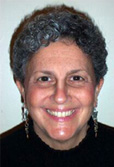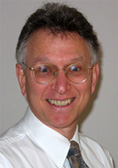Opportunities and Challenges for Web 2.0 in Schools

Brought to you by:

Tuesday March 31, 2009 | 10 am PST / 1 pm EST
Click here to download the webinar presentation
Today’s students have grown up with digital technologies at their fingertips. For this generation, using Web 2.0 tools at school can make learning an active rather than passive medium, which enriches the learning process. With Web 2.0 technologies students can collaborate with others, create projects, communicate the results to a real audience, and receive valuable feedback. Web 2.0 tools can enhance teaching opportunities and better equip students with the 21st-century skills necessary for their future.
But because these web-based technologies can mean security challenges and content issues, many schools shy away from providing them on district networks. Attend this informative webinar to hear an expert's analysis of the advantages and dangers of Web 2.0, find out the results of this national survey, discover innovative strategies for balancing learning and safety, and hear a real-world story of how one district has effectively implemented Web 2.0 tools in the classroom.
Presenters:
Tools and ideas to transform education. Sign up below.
Alan November is an international leader in education technology. He began his career as an oceanography teacher and dorm counselor at an island reform school for boys in Boston Harbor. He has been director of an alternative high school, computer coordinator, technology consultant, and university lecturer. He has helped schools, governments and industry leaders improve the quality of education through technology.

Ellen Bialo and Jay Sivin-Kachala are the founders of Interactive Educational Systems Design (IESD), recognized in the education technology and publishing communities as a leader in research and analysis, instructional design, and related materials development. IESD conducts research on educational programs and products and provides a variety of consulting services related to their development, evaluation, implementation, and marketing. Clients include education publishers, technology hardware manufacturers, government agencies, non-profit institutions, and school districts. Services include both quantitative and qualitative analyses including focus groups, surveys, in-depth interviews, classroom observations, user testing, competitive landscape analysis, research literature reviews, and analysis of demographic and financial data. Dr. Sivin-Kachala earned his doctorate in Technology in Education from Teachers College, Columbia University. Ms. Bialo also received her graduate degree in Educational Psychology from Teachers College, Columbia University.


Terrell Tucker is Director of Information & Technology Services. He is responsible for all aspects of district technology services related to administrative systems, infrastructure, security, server and desktop support, VOIP deployment, planning of new facilities and facility modernization. Provide assistance to Educational Services for classroom integration of technology, technology plan development and multimedia deployment within classrooms. Develop and manage technology budgets, staffing levels and appropriate technology saturation in district facilities. Provide technical support to end-users and technology staff.
